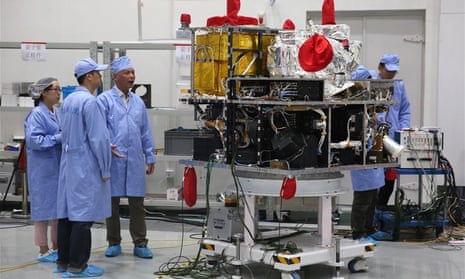Sometime this month, China is planning to launch a satellite that could be a first step towards establishing a “hack-proof” communications network.
The satellite is a collaboration between the Chinese Academy of Sciences and the Austrian Academy of Sciences. It will be launched from China’s Jiuquan satellite launch centre in Inner Mongolia aboard a Long March 2D rocket.
It will test the quantum phenomena that govern the sub-atomic world of particles. These are often bizarre: particles can be in two places at once, they can behave like waves and solid particles, they don’t quite know exactly where they are – the list goes on.
However, one of the weirdest behaviours is the one Einstein described as “spooky”. It is termed entanglement. When two particles interact with one another, they become “entangled”, and any subsequent interaction that one of those particles has immediately affects the other one.
According to theory, this entanglement persists over any distance, but so far researchers have only tested it across the 143km that separates the Canary islands of La Palma and Tenerife. The new satellite will attempt to communicate with ground stations in Beijing and Vienna, and test entanglement over 1,200km.
No one understands the mechanism by which entanglement works, but if it can be harnessed it offers “hack-proof” communications. This is because any eavesdropping would automatically change the message. Thus the intended recipient would know the signal had been tampered with.
Military and governmental applications are obvious, as are secure on-line shopping and banking. Other countries, such as Japan, UK, Italy, Canada and Singapore are also pursuing quantum satellites, but the US appears not to be investing very much in the technology.

Comments (…)
Sign in or create your Guardian account to join the discussion